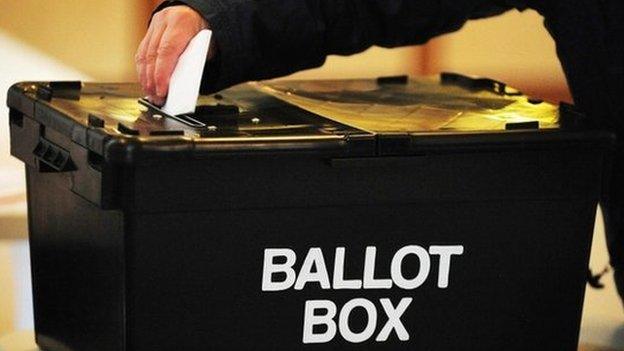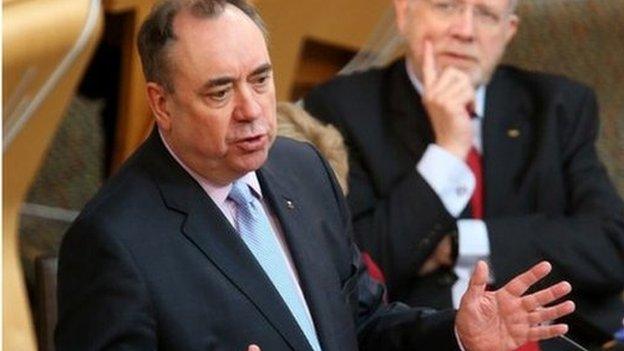The General Election: One year to go
- Published

Unlike previous years, the prime minister has no influence over the date of the general election this time
You can start the countdown now. Strike off the days one by one. Mark up your diaries.
Thanks to the coalition's decision to scrap the prime minister's right to pick the date and to fix the length of this and future parliaments, we know the date on which we will get the chance to choose our next government.
For the first time in the history of British democracy, there'll be no "will he or won't he?" speculation about secret Chequers summits, prime ministerial speeches or visits to the Palace which might or might not set the date of the election.
All is certain. Well, up to a point.
The next government of the United Kingdom will be chosen by the people on 7 May 2015 but will there still be a United Kingdom for them to govern?
The people of Scotland might, by then, have voted to become an independent country.
If they have, David Cameron might choose to resign as prime minister. Would that trigger an election or just the choice of a new PM from within the coalition?
Whether he stays or goes, there will be a long gap between a "Yes" vote and the ending of the Union which raises the possibility that the next government of the United (for now) Kingdom could be kept in office by the votes of MPs in a country which had just chosen to leave.
If that happened, would those MPs lose their vote at the time of independence, forcing a new election or would that government simply soldier on until the next election scheduled under the Fixed Parliaments Act?

The outcome of the Scottish independence referendum could change everything
Of course, Scotland might vote "No". Indeed, the polls still suggest it will. So everything will be clear then, won't it? Well, not entirely.
The general election may be portrayed as a contest between three men - Messrs Cameron, Miliband and Clegg. Or, on the other hand, it may be seen as one involving four - with Mr Farage stepping onto the stage.
If UKIP win the European Elections and the Newark by-election, four party politics will arrive in England, as it already has in Scotland and Wales.
If, on the other hand, UKIP don't quite live up to the current heady expectations and if their support shrinks once the focus is less on protest and more on choosing who governs Britain the next election may look and feel much like the last one.
If, if if…Is anything clear I hear you ask?
Well, surely we can all agree that the public haven't liked this coalition thing. That, at least, is what they tell the pollsters.
Unfortunately, though, those same people also demonstrate in the polls that the country has - for now at least - not made a clear choice of who it wants to govern. Labour's lead has shrunk and is so small to make the result unpredictable.
Ah yes, you may add, but look at history. It's true that history can be our guide. No government polling at this level a year before an election has gone on to win. But just hang on a second. It is also true that no opposition starting from so low a base and with such an unpopular leader has gone on to win.
So, in conclusion allow me to sum up:
There will be an election a year from today. There may or may not be a United Kingdom to govern for very long. There may or may not be a change of prime minister. There may or may not be another coalition
There may or may not be another pact between the Liberal Democrats and the Tories or a new one with Labour. Oh, and did I mention that Boris might or might not run …